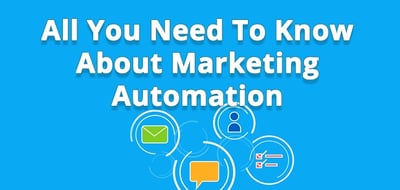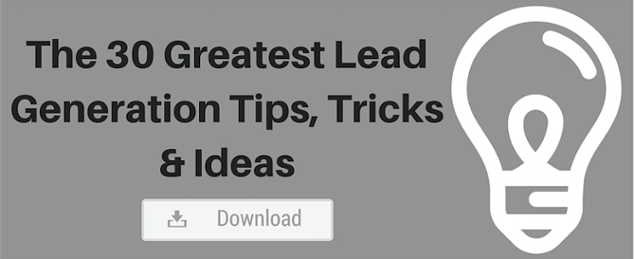As a busy marketer, a tool that saves time and money by streamlining your marketing efforts sounds pretty good when you have more things to get done than time in a day. Marketing automation can provide a solution.
 “Great automation is a result of highly targeted, personalized, valuable, timely, and remarkable content that is sent to a healthy and engaged database,” writes Jessica Meher for HubSpot. When you use automation in conjunction with other components of your inbound strategy, like content, it will contribute to long-term success.
“Great automation is a result of highly targeted, personalized, valuable, timely, and remarkable content that is sent to a healthy and engaged database,” writes Jessica Meher for HubSpot. When you use automation in conjunction with other components of your inbound strategy, like content, it will contribute to long-term success.
What Is Marketing Automation?
Let’s start with the basics. HubSpot defines it as “the software that exists with the goal of automating marketing actions.” As marketers, there are plenty of tasks that are repeated, such as email and social media. Marketing automation software makes it easier to prioritize and get these tasks done efficiently to free up your time.
The real benefit of marketing automation is to bridge the gap in your inbound strategy from converting leads into closing customers. Automation allows you to better segment and target your contacts to send them more relevant content that moves them along the path to purchase.
![[Free Trial] Want to try HubSpot's marketing platform to attract and generate more leads and customers? Start your free 14-day trial! No commitment.](https://no-cache.hubspot.com/cta/default/389011/d414453e-53eb-4514-951f-93d7f6e4b48d.png)
Do I Really Need It?
Well, do you want to turn your leads into customers in a more effective way? Are you looking to give sales better qualified leads? Marketing automation software will help you to accomplish these goals, when used with a solid marketing strategy. Plus, best-in-class companies are 67% more likely to use a marketing automation platform, according to the Aberdeen Group.
Choosing the right marketing automation tool for your business is the first step towards success, and there are plenty of options. Be sure to do your research and decide what features are most important and which platform works best for your company size.
How Will It Benefit My Business?
Marketing automation gives you the ability to create a highly personalized experience for your leads. You can segment contacts, set up lead scoring, track lifecycle, automate email, test landing pages, track website visitors and more, depending on your software. Nurtured leads make 47% greater purchases compared to non-nurtured leads, according to The Annuitas Group. Creating a personalized experience for your leads not only helps to further educate them about your company and how you can solve their problems, but also helps to build trust, which will make the lead more likely to want to purchase from you.
Get more out of the emails you are sending to your leads. Sending the same information to everyone in your contact list isn’t an effective use of time. Workflows are an important part of the lead nurturing process, and an automation tool makes it even simpler to stay on track and send personalized content to leads. Once you’ve set up the steps of your workflow, it will be automatically triggered based on a person’s behaviors. And nurtured leads result in higher conversion rates.
Is It Worth The Cost?
VB Insight found that most users of an automation software think that it is worth the price; 10% find it inexpensive, 47% fairly priced, 22% pricey but worth it and 11% too expensive, 10% were not sure.
Just like any other tool or platform, marketing automation software will not replace a solid marketing strategy. It can only enhance what you are already doing, so make sure you’re following best practices and have a plan in place to achieve your marketing goals.
Will My Team Be Able To Learn To Use It?
With any new tool or platform, there will be a bit of a learning curve. Make sure the platform you choose comes with access to the level of support you need, whether through technical support or training and consulting resources that will help you learn to get the most out of your software. Consider holding training sessions for your new software to get everyone up to speed. Or if you have a partner agency that helped you find the right platform, they can also help you to get set up.
